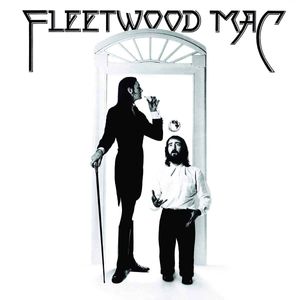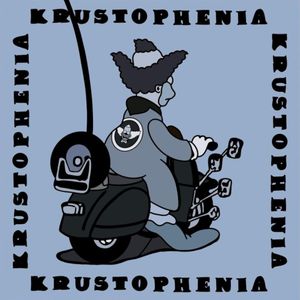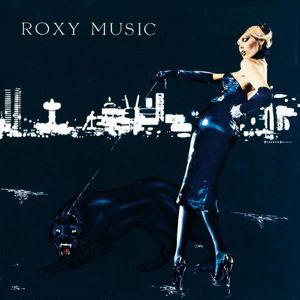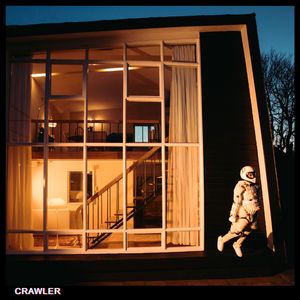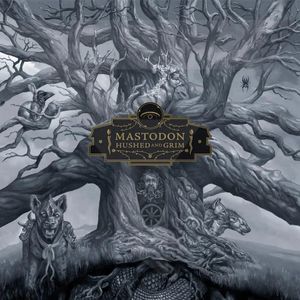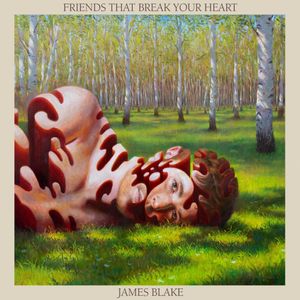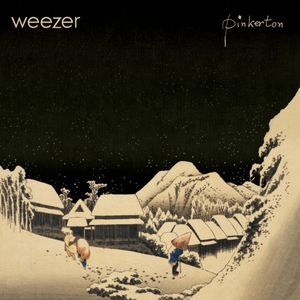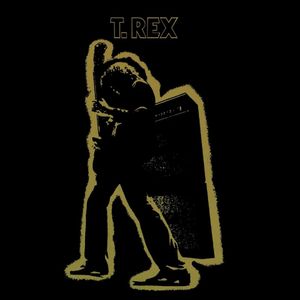Our 10 favourite tracks of 2016
10. “Pripyat” // Mogwai

André
Much of Mogwai’s latest record/soundtrack is exceedingly beautiful, at times bordering on the realms of tranquility. “Pripyat”, with its ever-evolving drones and boisterous crescendos, is the terrifying exception. Named after the abandoned town in Ukraine that was subject to a tragic nuclear disaster 30 years ago, the track is utterly relentless in its apocalyptic tone. Mogwai are one of only a few artists who can muster such a menacing soundscape of this quality. The long bridge of mutating sounds and severe use of stretched dynamics are both key factors, but it’s the unsettling pace of the percussion that truly drives home the ominous inevitability of destruction, and the tom fills in the final crescendo are absolutely explosive. The dust quickly settles, which only highlights the extreme level of destruction. As an audible depiction of the looming threat of nuclear power, “Pripyat” is frighteningly flawless. I’m sure Mogwai will be pleased to know that it has joined my ‘end of the world’ playlist.
9. “Real Friends” // Kanye West

Fred
The Life of Pablowas a mixed bag to say the least. “Real Friends” was one of several tracks which showcased the album’s untapped potential, balancing kooky neon sound against a biting sobriety. Kanye West is a baffling figure, but profound moments pop out of the nuttiness often enough to make him an important one. In the case of “Real Friends”, the shift in focus from bleached assholes to two-faced assholes was a welcome one, and it’s a terrific song. That the famous and powerful have to navigate a minefield of leeches and manipulators is well known, but Kanye’s reflections in “Real Friends” make it well felt. The simplicity of their expression only makes them more impactful. The clarity is stunning, frankly. There’s a decent chance Kanye West is out of his mind, but what a mind it is.
8. “Life Itself” // Glass Animals

Andrew
I’ve been hooked on most of Glass Animals’ latest album, How to be a Human Being, since its release in the summer, but “Life Itself” was the track that hooked its claws in furthest. Livelier than my other favourites on the album, “Life Itself” makes for an excellent opener with an infectious, tribal drum pattern panned right by the listener’s ears and synths twinkling and jerking at opposite ends of the stereo field as Dave Bayley’s smooth vocals glide through the centre of the mix. As the chorus erupts with thick, fizzing synths and a catchy vocal melody, “Life Itself” firmly worms its way into my head. The whole track reeks of summer to me which only does the track further favours. The cherry on top? The track’s lead character has his own site, MIDI re-interpretation and all.
7. “Untitled 02 | 06.23.2014.” // Kendrick Lamar

Fred
Kendrick Lamar is silly talented. To Pimp a Butterfly was so good that its leftovers have provided some of the highlights of 2016. Silly. untitled unmastered. was solid throughout, but “Untitled 02” did a particularly good job of bridging the gap between Kendrick’s A game and his B-side project, providing a deeply satisfying peek into the mind of one of the greatest talents in music right now. It’s off-kilter, melodic hip-hop sounds — as you might expect — like a rugged cousin of Butterfly, oozing kindred class, but proving far more abrasive. There’s a prickliness to early versions of things that I like very much. That roughness feels truer to life, in many respects. “Untitled 02” is rough, groovy, and gorgeous — a fine ambassador for Kendrick’s latest project. Until his next one: pimp pimp hooray.
6. “Symptom of Terminal Illness” // The Dillinger Escape Plan

André
“Symptom of Terminal Illness” stands confidently as one of the best rock songs of the year. By The Dillinger Escape Plan’s frenzied standards, it’s a delicate and surprisingly measured affair, refraining from the usual traits of mathcore that Dissociation is otherwise made out of. It’s one of only a few cuts on the record that contains a conventional structure for listeners to follow, and it distinctly benefits from the obvious restrain. The roaring, thundering chorus, which admittedly sounds more like Deftones than it does Dillinger, is almost anthem-like in its forthright approach. Greg Puciato’s confessional cries sound triumphant over the rousing backdrop of organised noise, of which the band have become so accustomed to generating during their rambunctious career. Upon release, Puciato described the song as “the most literal and non-metaphoric or abstract thing” that he’s ever written. It can be easily forgotten, but the simpler songs are often the most effective.
5. “Distant Sky” // Nick Cave & The Bad Seeds

Andrew
This was a surprising track for me and one that nearly escaped my top 10 list initially. Buried in Nick Cave’s emotional, mournful album, Skeleton Tree, “Distant Sky” really struck a chord with me. Haunting, delicate, and ethereal, this track remains the most evocative track I’ve heard this year and I’m able to easily sink into it with back to back listens. It certainly doesn’t feel like a 5 minute track. Else Torp has a lot to do with the track’s charm, while Cave’s gravelly vocals waver, sounding heartfelt and full of emotion, Torp’s alternating verses build on the dreamy atmosphere around them. “Distant Sky” is a gorgeous track that only hits harder with the context surrounding the whole album. The lyrics of this track in particularly takes on a whole new meaning.
4. “Burn the Witch” // Radiohead

André
Though it may not go down as their best, “Burn the Witch” will likely be remembered as one of the most important songs in Radiohead’s contextual history. Its release back in early May felt like a highly satisfying glimpse into the eagerly anticipated LP9, putting to rest many of the fears that fans had aggregated since The King of Limbs, which polarised listeners due to its stiff, mechanical mannerisms. The first few bars of dramatic strings were once a welcome sensation – now, they represent the dawn of a new Radiohead era. String arrangements had been a feature of the band’s music since OK Computer, but never before have they been so prominent. Jonny Greenwood’s work is the beating heart of “Burn the Witch”. After a second rendition of the haunting chorus, the song reaches a climax of There Will Be Blood proportions, as the speckled string notes rise in intensity to shower the ear ducts like a swarm of insects shifting through the dirt. The euphoria could not be contained – Radiohead’s music felt alive again.
3. “Hold up” // Beyonce

Andrew
Another track that’s found its way into my ears and won’t come back out again, “Hold Up” felt familiar and memorable from the first listen, and with somemajorsamples being credited in the sleeve notes, there may be a reason why. Blended together, “Hold Up” is a laid back reggae infused saunter that hides rage, resentment and love in its lyrics, and it’s all entirely intentionally arranged that way. Alongside Beyonce herself, writing and production credits include Ezra Koenig and Diplo, who both seem to be involved in every pop goldmine that each year brings with it. Add to this a story of love and adultery, whether rumour or truth, and “Hold Up” becomes a track full of winning formula, even for cynical pop music naysayers.
2. “True Love Waits” // Radiohead

Fred
It’s hard to explain why “True Love Waits” is so powerful without sounding like a colossal sap. There’s such a gentle finality to it. Prior to its recording for A Moon Shaped Pool, it had famously been kicking around for twenty years. Ed O’Brien once joked that failed attempts to record the song number in the hundreds—and that was in 2000! One can only wonder at the forms “True Love Waits” has taken in its lifetime. And after all that time and thought and care, Radiohead nail it as a piano ballad, because of course they do. That’s all it needed. Bittersweet doesn’t begin to describe the beauty of “True Love Waits”. It has that tenderness of beaten and bruised innocence. The impossible softness of Thom Yorke’s vocals, the childlike sway of the piano; the song’s purity-in-spite-of-itself borders on the sublime. I continue to find it uniquely moving. If Songs of Innocence and of Experience were songs, I think a lot of them would sound like “True Love Waits”.
1. “Blackstar”// David Bowie

André
How typical of Bowie to turn the forecast of death into a fine piece of art. The beautifully composed Blackstar is one of the most fascinating farewells in music history, with jazz-tinged instrumentals acting as an underlay for some of Bowie’s most striking lyrical content to date, and no song better illustrates the record’s creative credentials than its 10-minute art-rock title track. Thematically, it expands on the insurgent musings that have marked many of his previous works by converting them into subtle introspections. It wasn’t clear at the time, but Bowie had effectively created his own requiem. Listening to it now feels like some sort of religious experience. There’s a wonderful, spiritual vibe to the song that endures for its entire duration, with brooding chants of Satanic suggestions combining exquisitely with supernatural saxophone solo’s, plaguing it with an unforgiving sense of grief. Even during his most experimental years, Bowie had never sounded this mysterious: for him to produce something so audacious at this time, particularly at such a delicate stage of his life, is a truly remarkable feat. In spite of its many credentials, Bowie’s final album is unlikely to be held on the same pedestal as his most celebrated works, but “Blackstar” is nonetheless a song that completely exemplifies Bowie’s commitment to craft and his devotion to performance.
Fred
This was a pretty mythic last word. Bowie’s last first song has all the gravitas you could have hoped for. Complex, seductive instrumentation, ethereal production, and some truly soaring vocals—the likes of which I hadn’t felt from Bowie for some time. When people think of Blackstar, the titular track will probably be what comes to mind. I’ve found it quite nice that Andre, Andrew, and I each prefer a different third of the track. It invites you in to experience as you see fit, covering so much ground that it feels more like a mystic window than a song. The darkness swallows you whole. “Blackstar” is a beautiful, typically original swansong, and I expect it will be a favourite of reminiscing Bowie fans for years to come. You’d do well to find a finer dirge than this. Magisterial.
Andrew
“Blackstar” was the reveal of epic proportions. Released ahead of David Bowie’s 25th album to the intrigue and excitement of music fans, it ultimately became the opener to his final record. Following his death shortly after the release of Blackstar, the extraordinary title track became one of many that developed a whole new set of meanings. Clocking in at 10 minutes, “Blackstar” has plenty of room to expand and explore. Bowie’s vocals reverberate eerily against the shimmering, cinematic canter, whilst the jazz instrumentation punctuates the atmosphere through its mysterious bath of strings. It allows itself to take numerous turns and diversions before its dramatic end, some more ominous than others. The song fully deserves its length and makes for a masterful opening to one of the strongest albums of the year. Without a doubt, Bowie left a lasting impression on the world in 2016, and “Blackstar” was a huge part of that.
Related Posts
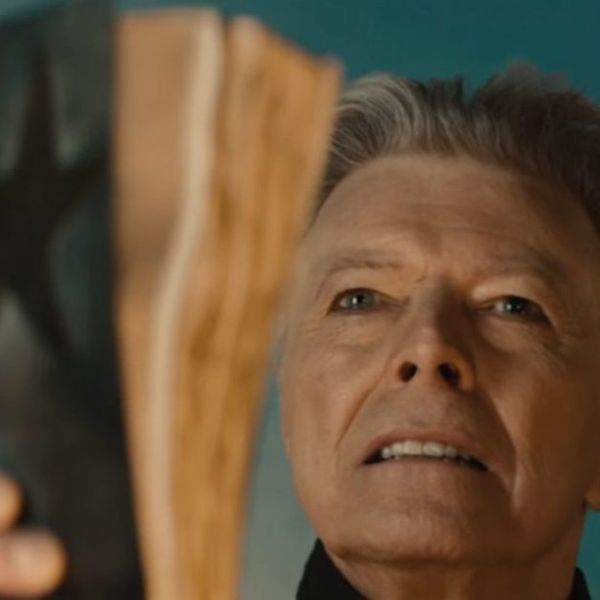
Our 10 favourite albums of 2016

“Show those ruffians how it’s done” – André and Fred listen to Metallica
Our 10 favourite albums of 2017

